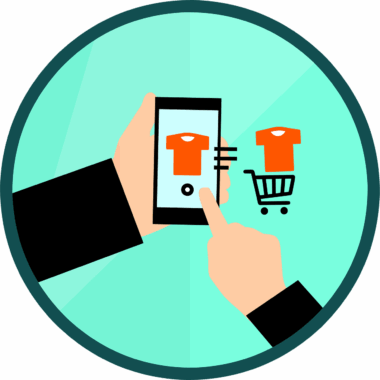The Role of Discounts and Promotions in Online Consumer Decision Making
The online shopping landscape has transformed dramatically, largely driven by changing consumer behavior influenced by discounts and promotions. Consumers are continually looking for the best deals, leading retailers to devise captivating strategies to attract and retain buyers. These strategies not only include temporary price reductions but also promotional bundles and bonus gifts. The omnipresence of these promotions creates an anxious excitement among consumers, who feel they are capitalizing on an opportunity. This sense of urgency is amplified by limited-time offers that encourage swift decision-making, compelling consumers to buy before the deal expires. Furthermore, discounts significantly influence perceived value, as consumers often equate lower prices with quality. By understanding the psychology behind these decisions, businesses can tailor promotions that resonate deeply with target audiences. The effectiveness of these marketing techniques is evident in the growing number of online shoppers who prioritize deals before making purchases. Retailers, therefore, must continually adapt their promotional strategies to align with consumer preferences and behavioral trends. As shopping behaviors evolve, so too must the approaches taken by businesses to ensure they remain competitive and relevant in a fast-paced digital market.
Psychological Impact of Discounts
Discounts carry significant psychological weight, significantly impacting consumer attitudes and decisions. When consumers perceive a discount, it can lead to heightened feelings of happiness and satisfaction. This emotional response is attributed to the perceived monetary advantage and the idea of saving money. Moreover, promotional offers create a sense of scarcity and urgency that can lead to impulsive purchases. For instance, limited-time sales trigger a fear of missing out, persuading consumers to act quickly. A consumer’s likelihood of purchasing can increase dramatically when they believe they are obtaining a quality product at a reduced rate. Furthermore, social proof plays a vital role here, as seeing others benefit from a discount can validate their decision to buy. Additionally, consumers often share their finds on social media platforms, amplifying the perceived value of the promotion. Merchants, therefore, need to leverage these psychological benefits by crafting promotions that highlight savings while also establishing social validation. This can involve using testimonials or ratings alongside promotional messaging, creating an aura of trust surrounding the discount. By appealing to consumers’ emotions, businesses can strengthen their sales initiatives effectively.
Promotional strategies in online shopping often utilize various digital marketing channels to maximize reach and effectiveness. Email marketing campaigns, for instance, serve as a powerful tool for informing customers about upcoming discounts and promotional events. Targeted advertisements on social media platforms can further enhance visibility and engagement, reaching consumers where they spend much of their digital time. Influencer partnerships also provide avenues for authentic promotion, as influencers can present discounts and offers in a relatable context. Various formats like flash sales, special discount codes, and loyalty programs can invigorate consumer interest, motivating shoppers to revisit brands frequently. The integration of personalized experiences with discounts allows retailers to connect meaningfully with their customers. Understanding purchasing behavior through data analytics can aid businesses in curating tailored promotional offers that align with individual preferences. The technique ensures that consumers feel valued and appreciated, engendering a sense of loyalty. Innovations like targeted pop-ups on websites also catch consumers’ attention at opportune moments, potentially directing them toward completing their purchases. Ultimately, businesses that effectively harness marketing channels will likely enhance their promotional strategies to drive sales.
The Role of Social Media in Influencing Purchases
In the digital age, social media plays a monumental role in consumer behavior, acting as an essential platform for promoting discounts and special offers. Instagram, Facebook, and Twitter are particularly influential, with brands utilizing these platforms to showcase engaging content that highlights limited-time deals. Social media marketing can create dynamic campaigns that not only illuminate discounts but also generate excitement among potential buyers. User-generated content along with promotional posts can foster a community feel, encouraging users to share their experiences with specific promotions. This collective sharing amplifies the reach of these deals, as followers often trust recommendations from peers over brand messaging. Furthermore, interactive social media features, such as polls and contests, can stimulate consumer involvement and enhance brand loyalty. To take full advantage of these platforms for promotions, businesses should encourage clients to interact with the content, subsequently broadening their audience. Leveraging trending hashtags and popular challenges can also help retailers gain traction, making discounts more visible. Consequently, the relationship between social media and consumer purchasing decisions is vital for brands aiming to thrive in today’s competitive e-commerce landscape.
Moreover, strategic brand partnerships can amplify the effectiveness of online promotions by combining resources and reach. Collaborative campaigns that introduce discount codes across multiple platforms can create significant buzz while extending customer bases for participating brands. This synergy not only broadens the promotional audience but also strengthens brand positioning through association. However, consumers also exhibit caution regarding perceived value from these partnerships; clarity about the discount’s benefits must remain paramount. Trust is essential in online shopping; consumers must feel confident in the authenticity of a promotion to engage healthily. Effective communication about the collaboration ensures that consumers understand the value they receive, negating skepticism surrounding joint promotions. Moreover, it’s prudent for brands to monitor consumers’ reactions and feedback regarding partnerships, making real-time adjustments to enhance effectiveness. Utilizing analytics to track performance over time offers insights into which collaborative strategies yield the best results. Consequently, engaging in fruitful partnerships allows retailers to tap into new customer demographics while showcasing their value proposition more effectively. Ensuring transparency and awareness throughout the process will enhance overall consumer trust.
The Future of Discounts in Online Shopping
Looking ahead, the landscape of online promotions is set to evolve further, enriched by technological advances and changing consumer attitudes. Artificial intelligence (AI) is expected to play a critical role in personalizing offers, tailoring discounts based on a consumer’s previous shopping behavior and preferences. Machine learning algorithms can analyze vast amounts of data to identify trends, enabling businesses to strategize more effectively for upcoming promotions. Augmented reality (AR) and virtual reality (VR) technologies may also impact how consumers engage with discounts, providing immersive experiences that inform purchase decisions. Gamification is another trend likely to gain traction, as businesses develop interactive promotions that incentivize consumers through game-like mechanics. Moreover, as sustainability becomes a priority, discounts promoting eco-friendly products may become more prevalent. The emergence of ethical consumerism can compel businesses to integrate green initiatives into their promotions. Ultimately, businesses need to remain flexible and responsive to both technological advancements and consumer trends, ensuring they continue to engage effectively. Embracing change will enhance customer experience and retention, making consumers happy and driving brand loyalty.
The role of discounts and promotions in online consumer decision-making is multifaceted and deeply intertwined with modern shopping behavior. As competition intensifies in the e-commerce realm, businesses must consistently align their strategies with consumer expectations. Understanding how consumers perceive and react to discounts is crucial for effectively driving sales and fostering loyalty. Employing a mix of psychological insights, innovative marketing tactics, and evolving technologies will ensure brands remain appealing to consumers. Retailers must also prioritize transparent communication about deals, ensuring that customers feel informed and valued. Continuous monitoring of promotional effectiveness through data analytics will enable businesses to refine their strategies to better meet customer needs. In an ever-changing market, adapting to new consumer behaviors while embracing engaging promotional tactics will be vital for success. By prioritizing the consumer experience and integrating technology, businesses can establish meaningful connections with their audiences. This ultimately leads to improved sales performance and brand reputation. As discounts and promotions continue to shape consumer decision-making, businesses should view these as ongoing opportunities for growth and connection with customers.





